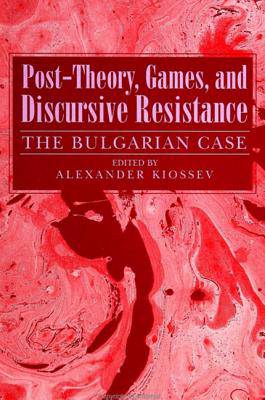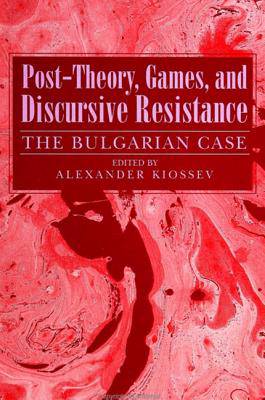
- Retrait gratuit dans votre magasin Club
- 7.000.000 titres dans notre catalogue
- Payer en toute sécurité
- Toujours un magasin près de chez vous
- Retrait gratuit dans votre magasin Club
- 7.000.000 titres dans notre catalogue
- Payer en toute sécurité
- Toujours un magasin près de chez vous
Post-Theory, Games, and Discursive Resistance
The Bulgarian Case
145,45 €
+ 290 points
Description
This book consists of a dialogue of genres (fiction, parables, essay, analytic, programmatic) on the topic of Eastern European political culture before and after 1989. These texts introduce us to a reexamination of the aesthetic and political character of Eastern Europe. The later texts undertake a major theoretical revision of some of the key concepts in aesthetic and political philosophy associated with post-totalitarian Eastern Europe. The topic is very important for a correct evaluation of the current ideological and aesthetic makeup of our postmodern age. The most stimulating aspect of this collection is its continuous detour through related areas--its definition of political aesthetics by way of the historical avant-garde, its explanation of communism by way of the modernist utopia.
Spécifications
Parties prenantes
- Editeur:
Contenu
- Nombre de pages :
- 190
- Langue:
- Anglais
- Collection :
Caractéristiques
- EAN:
- 9780791423578
- Date de parution :
- 25-01-95
- Format:
- Livre relié
- Format numérique:
- Genaaid
- Poids :
- 444 g






